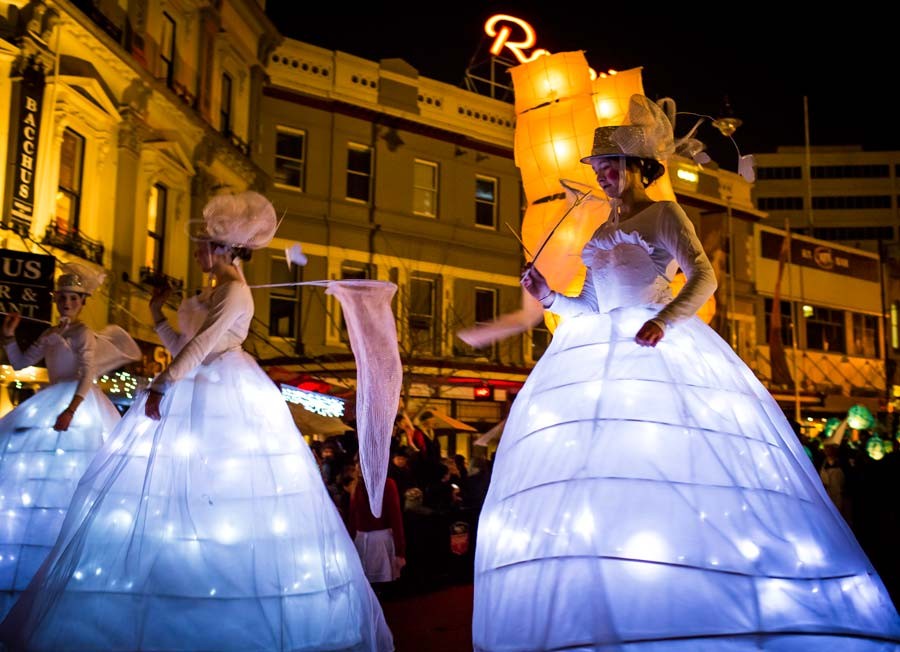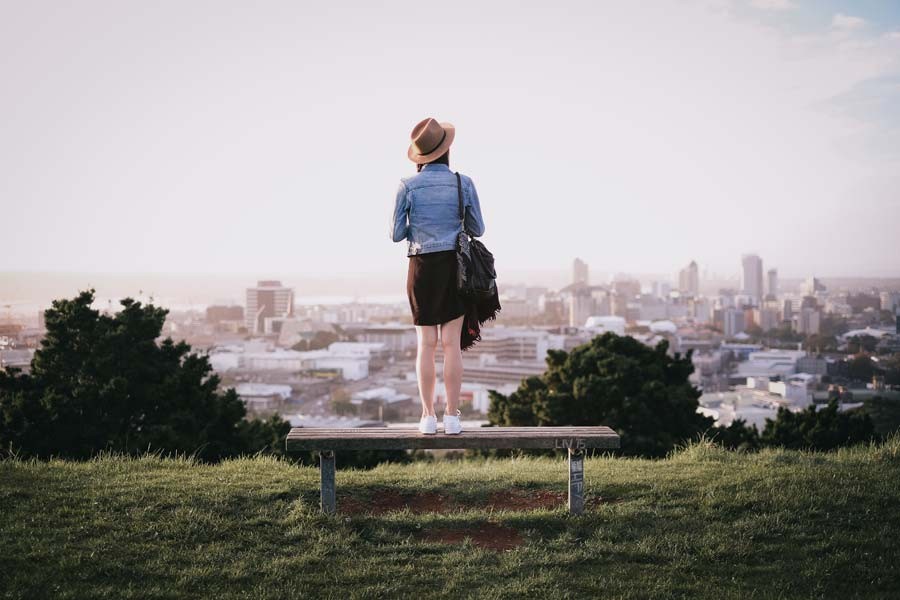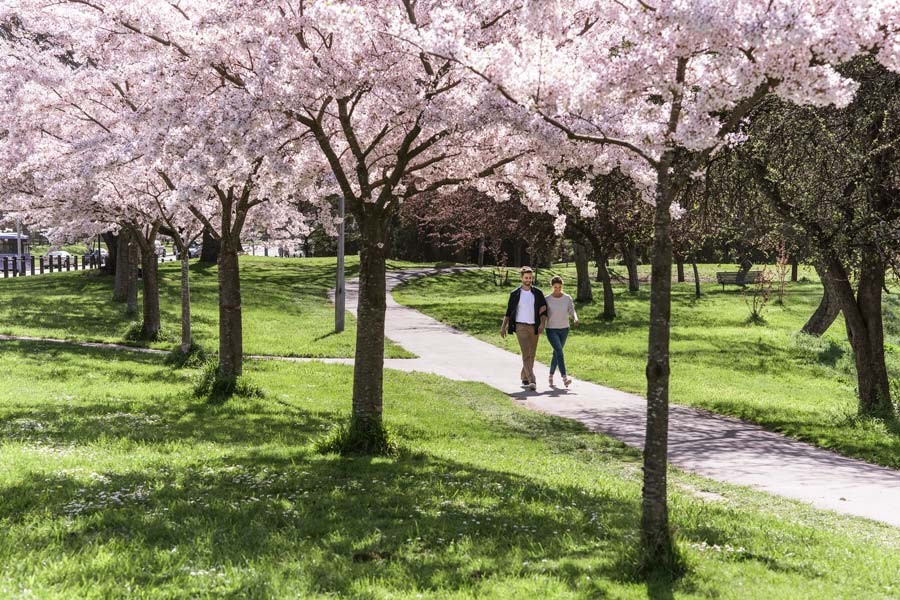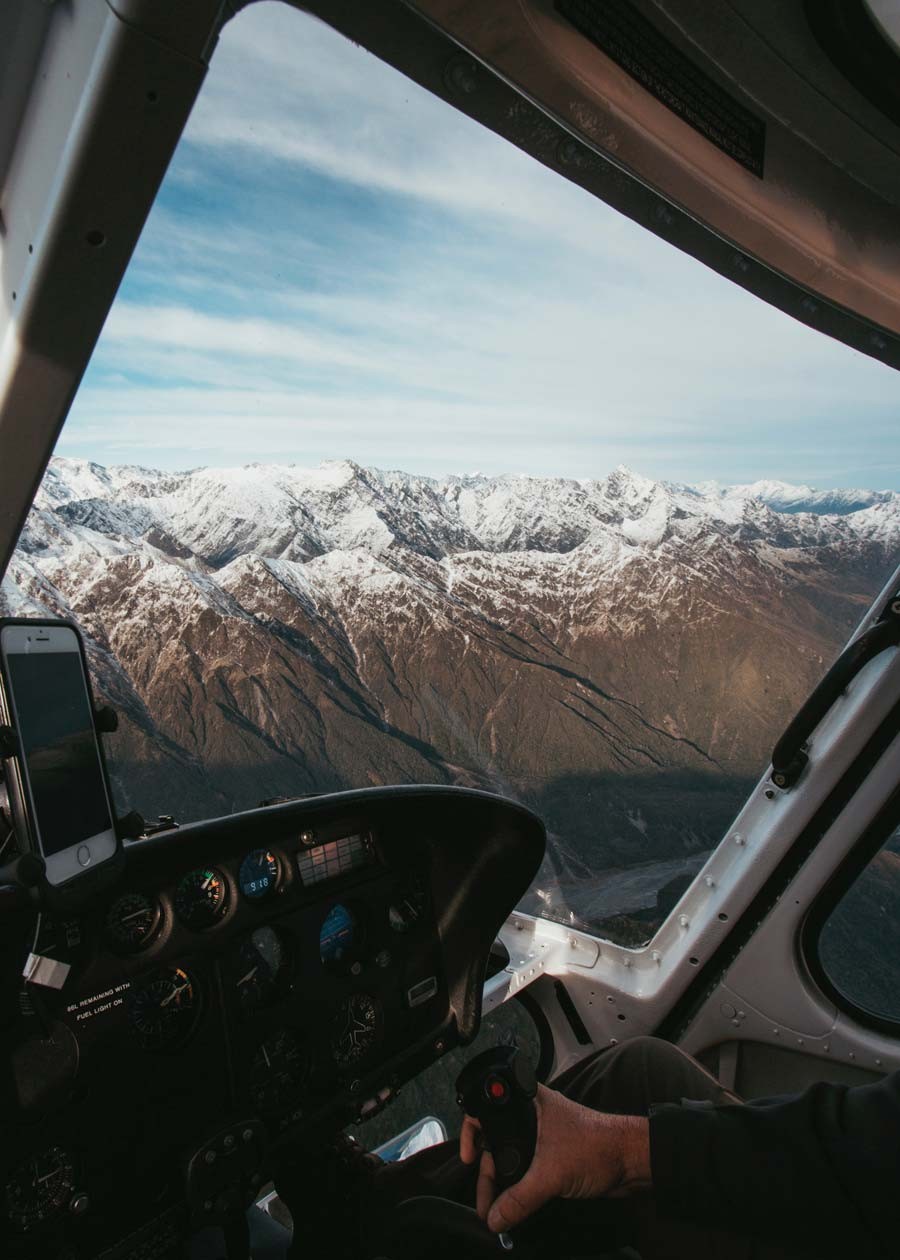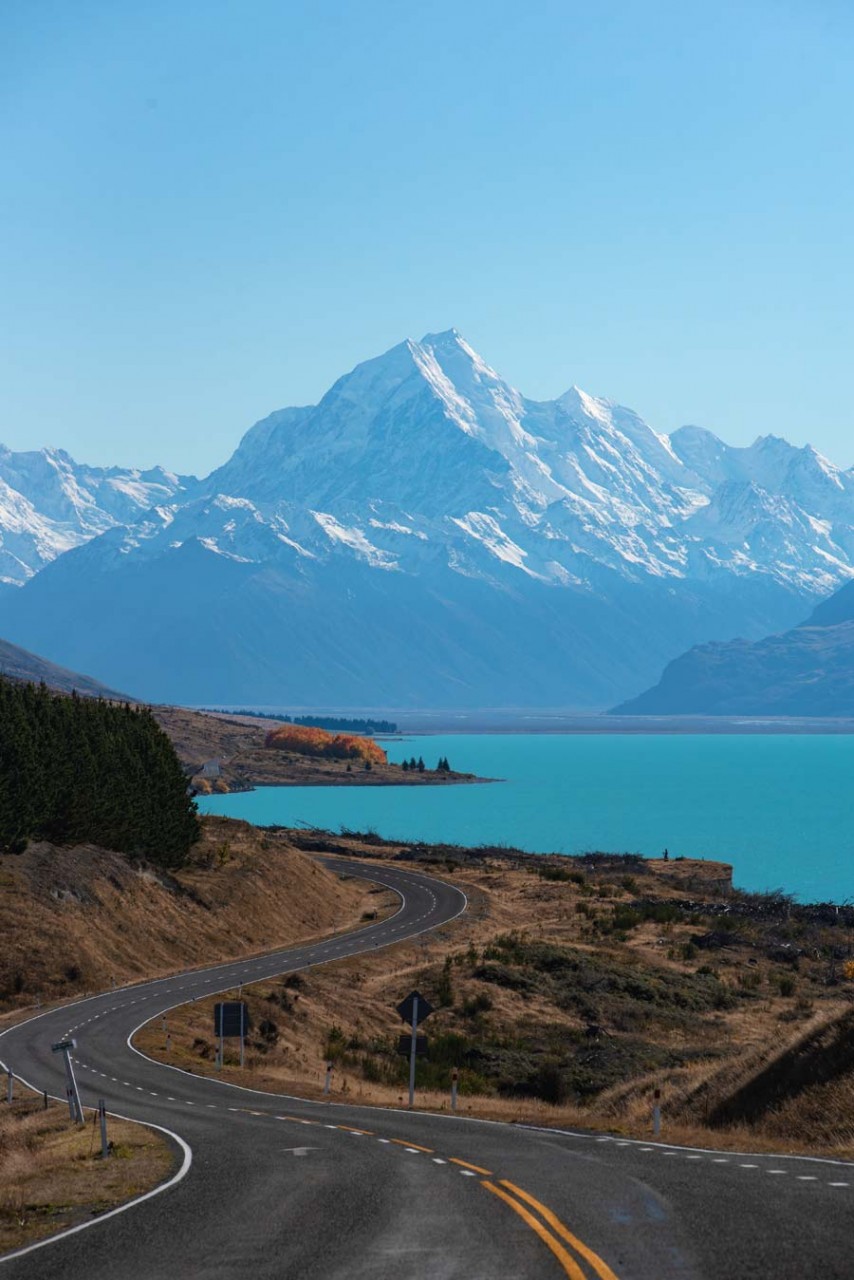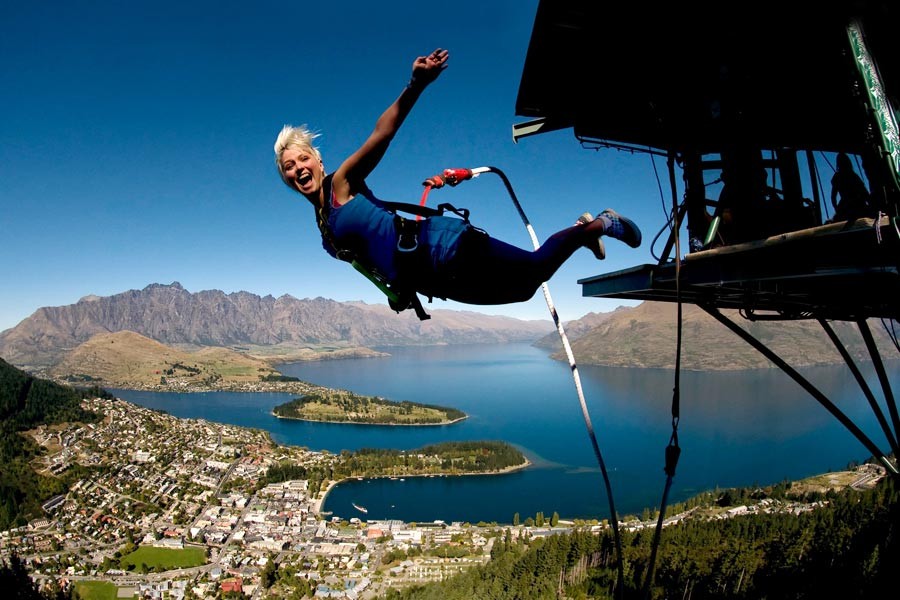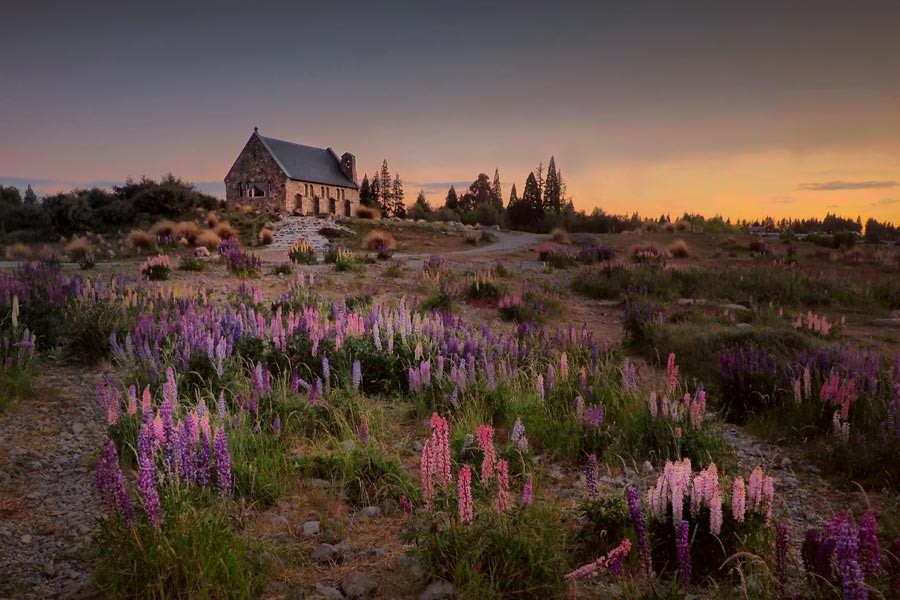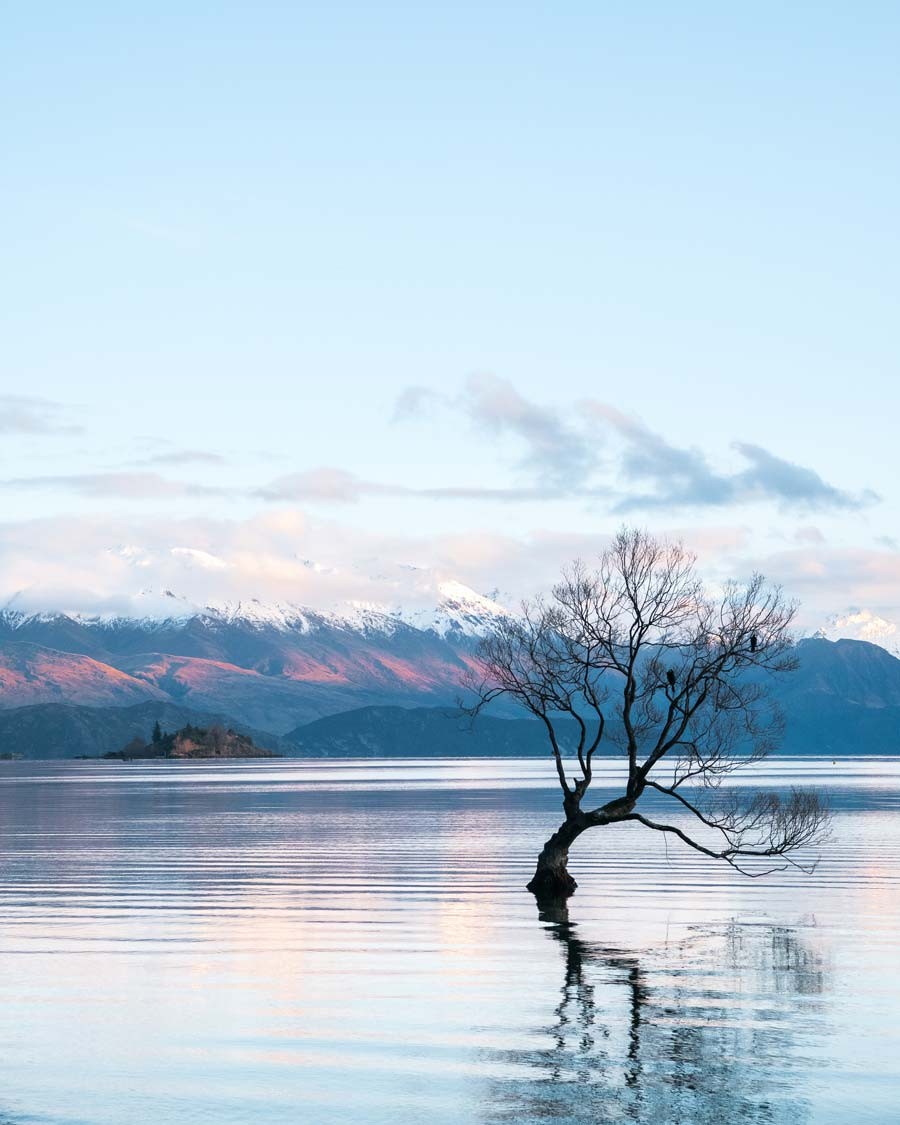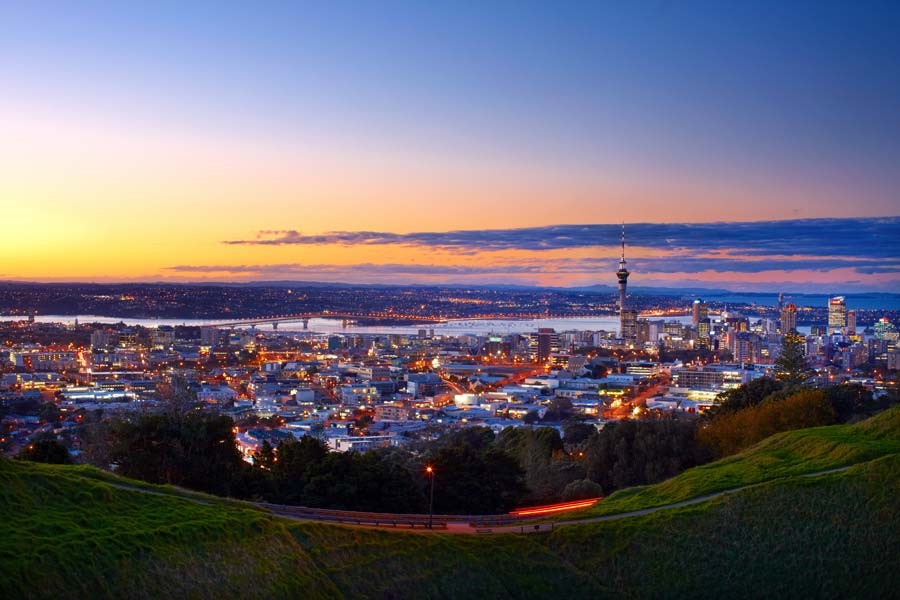Everything you need to know about New Zealand.
Accommodation New Zealand offers all standards, from hotels to backpacker hostels. Book in advance whenever possible, at least a day or two ahead. Always confirm bookings for accommodation if you are travelling during public or school holidays, particularly in the high season (December to February).
Airports Key international airports are located in Auckland, Wellington and Christchurch. Limited Australian flights land at Hamilton, Palmerston North, Queenstown and Dunedin.
Alcohol The legal age limit for consuming alcohol in New Zealand is 18. Anyone who looks under 25 years of age will be required to produce proof of age before buying alcohol.
Banks Banks are generally open during working hours from Monday to Friday, except on public holidays. All major credit cards are accepted and automatic teller machines (ATMs) are widely available in all but the smallest towns.
Business Infrastructure is of a high standard, with excellent telecommunications and transport. Business services are easy to find. Hotels may offer an in-house secretarial service.
Cities More than one quarter of New Zealand’s population lives in Auckland in the North Island. The capital is Wellington, located in the south of the North Island. Christchurch is the largest city in the South Island.
Climate The climate is temperate, except Northland, which is subtropical. Average maximum summer temperatures are 20 – 30°C and in winter, 10 – 15°C. The seasons occur in reverse of the Northern Hemisphere seasons. Outside of alpine areas, temperatures generally do not fall below freezing.
Clothing Conditions can change rapidly – always keep a sweater handy for sudden changes in weather. Rain can occur at any time, so bring a waterproof jacket, plus warm clothing for winter visits.
Currency New Zealand’s currency is the New Zealand dollar (NZ$), comprising coins of 10, 20 and 50 cents, $1 and $2; and notes of $5, $10, $20, $50 and $100. Major credit cards can be used and travellers cheques are accepted at hotels, banks and some retail stores. Most banks are part of Cirrus or Plus.
Departure Tax Since July 2010 New Zealand departure tax has been included in the airline ticket price for those leaving New Zealand.
Disabled Access The law requires new buildings to provide access for people with disabilities, but check when booking. Obtain a parking concession with a mobility card or medical certificate. Visit Enable New Zealand at www.weka.net.nz.
Driving Visitors will need to provide their home country licence or obtain an International Driver’s Permit.
Duty Free Shopping Goods may be purchased at airport stores on arrival and departure, and downtown duty free stores will deliver purchases to airports.
Electricity Electricity is supplied at 230/240 volts (50 hertz). Most hotels also provide 110 volt a/c sockets (rated at 20 watts) for electric razors. For most other equipment an adaptor is necessary. Power outlets accept only flat 2- or 3-pin plugs. Use an RJ 45-type plug to connect your laptop to a computer socket and an adaptor with a flat 2- or 3-point plug to connect to the power supply.
Environment New Zealand is known as ‘clean and green’ for good reasons! A growing number of tourism operators are benchmarking with the globally recognised sustainable travel and tourism brand Green Globe New Zealand.
Etiquette New Zealanders are generally friendly, obliging and polite. They are egalitarian by nature and New Zealand has no formal class structure.
Gay and Lesbian Travellers New Zealanders are generally very accepting of homosexuality. The Human Rights Act 1993 makes it unlawful to discriminate on grounds of sexual orientation. [www.gaynz.com]
Goods and Services Tax All goods and services purchased in New Zealand are subject to 15% Goods and Services Tax (GST), which is included in the display price. Goods bought from duty free shops before departure are exempt from GST.
Health and Safety New Zealand is one of the world’s safest destinations, but basic safety precautions should be taken. New Zealand’s medical facilities operate to a high standard but services are not free, so purchase comprehensive travel insurance. Take care in the water [www.watersafety.org.nz] and when hiking, especially into remote areas. Ensure that you are appropriately equipped for the conditions. The sun is intense, so wear sunscreen. New Zealand has a relatively low crime rate, but please take sensible precautions such as keeping valuables out of sight and locking doors and vehicles, even in remote locations. In some areas it is inadvisable to walk alone late at night. In health and safety emergencies, dial 111 for ambulance, police or fire services. Doctors, dentists and 24-hour surgeries are listed in all regional telephone directories.
Insurance Most visitors are not eligible for publicly funded health services. Those covered by reciprocal health agreements with Australia and the UK are entitled to publicly funded health care for immediately necessary treatment only. Travel insurance is recommended.
Internet Internet access is widely available in internet cafés at an hourly charge, while free Wi-Fi is offered in many cafés and public libraries. Hotels often have internet access, including wireless access, for their guests’ use.
Language English is the major official language. Te Reo Māori is the second official language, and New Zealand Sign Language the third. New Zealanders are generally understanding if you do not speak English and will appreciate any effort made. Look online for English language courses. [www.englishnewzealand.co.nz]
Laptops Use an RJ 45-type plug to connect your laptop to a computer socket and an adaptor with a flat 2- or 3-point plug to connect to the power supply.
Māori Culture Go walking with a Māori guide, visit a marae or watch carving, weaving and traditional performance art. See Maori Culture for more.
Maps You can pick up regional maps from any of the visitor centres around the country and get directions from www.wises.co.nz.
Media New Zealand has AM and FM radio stations. RNZ National broadcasts news and weather on AM and FM (around 101 MHz FM). There are four major nationwide free-to-air TV networks and regional stations. SKY TV is the main pay-television operator. There are several major daily newspapers and many towns also have their own local newspapers.
Mobile Phones New Zealand has GSM digital networks only, having phased out CDMA, or analogue, networks. International mobile roaming is available with some providers.
Passports and Visas Passports are required for all visitors and must be valid for at least three months after the date the visitor intends to leave. Visas are not required for most visitors staying less than three months. For longer stays, a Visitor’s Visa may be required. For more information and to check requirements, visit the New Zealand Immigration Service website. [www.immigration.govt.nz]
Population New Zealand has a population of about 4.8 million people, mostly of British descent. New Zealand’s indigenous Māori make up around 15 per cent of the population. Other European cultures and people of Asian and Pacific Island descent have become an increasingly large proportion of the population.
Postal Service Post Shops (or smaller agencies run in conjunction with another business) are available in most centres. Most post shops open 9am to 5pm on weekdays. Some post shops are open from 9am to noon on Saturdays. [www.nzpost.co.nz]
Phoning Home A prepaid international calling card is usually the cheapest option, though you could rent or buy a cell phone for convenience and flexibility.
Prices New Zealand is a good value destination, particularly for visitors from Europe and the United States. Visitors can spend as little as NZ$65 per day or as much as they like. As a general rule, a main meal may cost NZ$15 to NZ$45. A night’s accommodation will cost anywhere from NZ$30 to NZ$300 and beyond.
Public Holidays There are trading restrictions on Christmas Day, Good Friday, Easter Sunday and before 1pm on Anzac Day. Banks generally close on public holidays, but many shops remain open. Confirmed bookings, especially for accommodation, vehicle rental and Cook Strait ferry sailings are essential if you’re travelling during public holidays. See here for a list of national and regional public holidays. Some establishments, such as cafés, may charge a holiday surcharge of 10 – 20 per cent.
Qualmark New Zealand tourism’s official mark of quality. Accommodation providers are rated on a star grading system. See the website to find out about the star grade definitions or to search tourism operators that carry the Qualmark. [www.qualmark.co.nz]
Regional Tourism New Zealand is home to a network of Regional Tourism Organisations (RTOs) that offer a wealth of visitor information about their region. Each maintains a region-specific website full of in-depth information for visitors. You’ll find the websites on the relevant regional pages in this guide.
Religion The population is predominantly Christian, but followers of many religions will find places of worship in cities and larger towns. New Zealand is accepting of many different religious beliefs.
School Holidays Although businesses usually don’t close during school holidays, attractions and popular holiday destinations may be busier than usual, so it is a good idea to book accommodation and transport ahead of time. The dates of holidays vary from year to year, so visit the Ministry of Education website for current information. [www.minedu.govt.nz]
Shopping In resorts and cities, shops are open seven days, 9am to 5pm, with late nights on Thursdays and Fridays. Smaller centres may have more restricted hours.
Smoking Smoking indoors is prohibited in all hospitality venues and public buildings in New Zealand. If you want to smoke, you will have to take your cigarette outside. The legal age limit for purchasing cigarettes in New Zealand is 18. [www.moh.govt.nz/smokefreelaw]
Telephones Public phones can be operated with phonecards purchased from convenience stores and information centres. Some public phones accept credit cards, but few accept coins. The international dialling code for New Zealand is +64. National area codes are listed in the front of phone directories. 0800 and 0508 numbers are free within New Zealand. 0900 numbers will incur an additional charge.
Time Differences New Zealand standard time is Greenwich Mean Time +12 hours; ahead of all other OECD countries. From the last Sunday in September to the first Sunday in April, New Zealand is on daylight saving time of GMT +13 hours. Find out the correct time and date at www.timeanddate.com.
Tipping Employees in New Zealand do not depend on tips for income. Tipping in appreciation of good service is at your discretion.
Vaccinations No vaccination certificates are required to enter New Zealand.
Visitor Information New Zealand has an extensive network of Visitor Information Centres providing visitors with free and comprehensive local knowledge to help you plan your trip – see Explore.
Walking Hiking opportunities range from 10-minute urban walks to multi-day alpine tramps. See Walking & Hiking.
Water Tap (faucet) water is fresh and safe to drink throughout the country. Water taken from rivers or lakes should be boiled or treated.
Weather Information See www.metservice.co.nz for weather information, tailored reports on New Zealand ski areas and official mountain forecasts. Alternatively, phone one of the MetPhone Mountain & Ski Info numbers listed: Central North Island 0900 999 15; Nelson Lakes 0900 999 02; Canterbury 0900 999 26; Southern Lakes 0900 999 81. Note that 0900 numbers incur a fee.
Weights and Measures New Zealand is metric, though people still use imperial measurements for distance, height and weight.
Websites Tourism New Zealand; Visitor Information; Weather; Maps: www.wises.co.nz.

